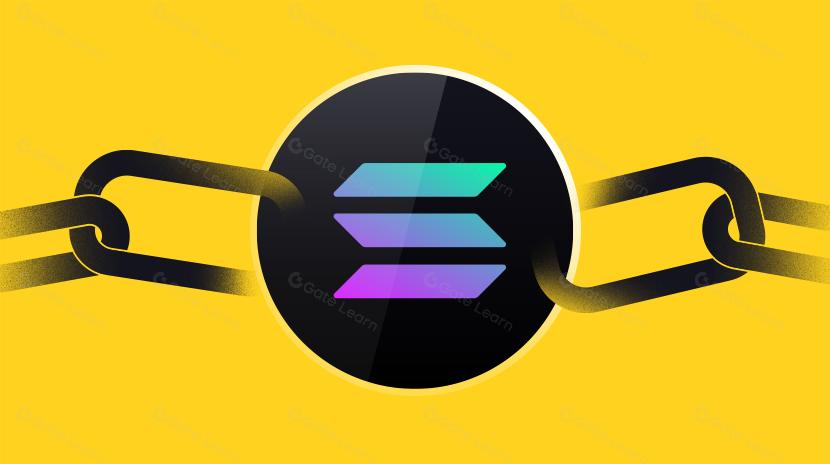digital def

What Are Numbers in Web3?
In the context of Web3, numbers are verifiable representations of information. They include values like balances, counts, and timestamps, as well as data encoded in different bases such as addresses, hashes, and digital signatures.
On-chain, every transaction, account balance, and block height is represented by a specific number. These numbers are not arbitrary text; they are stored using fixed bit lengths and numerical bases to ensure all network nodes can efficiently calculate and validate them.
How Are Numbers Represented in Computers?
Numbers in computers are represented using binary code—a system that records information with only “0”s and “1”s, optimized for electronic circuits. For readability, much on-chain data is converted to hexadecimal (prefixed with 0x), which offers a more compact and intuitive format.
For example, the decimal number 255 equals the binary 11111111, which also equals the hexadecimal 0xFF. The long strings beginning with “0x” that you see in block explorers are essentially numbers displayed in hexadecimal.
When the bit length is fixed, numbers can “overflow” or be truncated. Blockchain protocols enforce standardized field lengths to ensure every node processes these numbers using the same rules.
What Role Do Numbers Play in Blockchains?
Numbers serve as the fundamental carriers of state in blockchains: account balances, transaction counts, block heights, and timestamps are all numeric.
- Balance: The amount of tokens held by an account is stored as an unsigned integer in the ledger.
- Transaction Count: Often called the transaction nonce, this prevents duplicate submissions and increments by one with each outgoing transaction.
- Block Height & Timestamp: The network advances by block height; timestamps provide reference points but are governed by consensus rules.
These numbers are maintained collectively by network nodes, with consensus mechanisms ensuring all copies stay synchronized.
How Are Numbers Related to Blockchain Addresses and Hashes?
Numbers are closely tied to blockchain addresses and hashes—they’re all numeric outputs generated by specific algorithms and displayed in hexadecimal.
- Address: On networks like Ethereum, an address is typically 20 bytes (40 hexadecimal characters) used to identify accounts or contracts.
- Hash: A hash is a “digital fingerprint,” commonly 32 bytes (64 hexadecimal characters). The same input always produces a fixed-length output, enabling fast verification against tampering.
A common misconception is that addresses and hashes are just strings of characters. More accurately, they are numeric values shown in a readable base. When verifying, focus on matching their length and certain starting/ending segments rather than just a few middle digits.
How Do Digital Signatures Work in Web3?
A digital signature is a numeric proof generated by signing a message with a private key. Anyone can verify it using the corresponding public key. Think of your private key as a personal stamp and your public key as a publicly available stamp verifier.
Step 1: Use your private key to sign the transaction contents, generating a numeric result.
Step 2: Network nodes use your public key to validate whether this numeric signature matches the transaction.
Step 3: If it matches, it proves you authorized the transaction, allowing it to be included in a block. The process never exposes your private key; its security relies on mathematical complexity.
How Do Numbers and Token Decimals Affect Transactions?
Numbers and token decimals (decimals) determine how “on-chain values” convert into human-readable decimals. On-chain, values are stored as integers; front-end interfaces convert them according to the token’s decimals.
For example, many tokens use 18 decimals. What you see as 1.5 tokens is actually stored as 1.5 × 10^18 on-chain. If a stablecoin uses 6 decimals, a displayed value of 0.1 corresponds to 100000 on-chain.
When switching blockchains or tokens, differing decimals can make identical-looking numbers represent vastly different real amounts. Correct interpretation of decimals is crucial for transfers, approval limits (allowances), and automated trading.
How Are Numbers Used to Calculate Gas Fees?
The relationship between numbers and gas fees is straightforward: Fee = Gas Used × Gas Price. Gas price is typically denominated in gwei, where 1 gwei equals 10^-9 ETH.
Step 1: Determine the gas used (e.g., a simple transfer often uses around 21,000).
Step 2: Choose a gas price (e.g., 30 gwei).
Step 3: Multiply to get total fee: 21,000 × 30 gwei = 630,000 gwei = 0.00063 ETH. Convert to fiat based on market rates for cost estimation.
Setting a gas price too low may result in long confirmation times; too high increases your cost. Wallets and exchanges usually provide recommended values to help balance speed and cost.
How Are Numbers Used in Exchange Operations?
Numbers play a critical role at every step on exchanges—from order prices and quantities to deposit address validation.
On Gate’s limit order interface, both price and quantity have precision limits. You’ll see “minimum price increment” and “minimum order quantity,” determined by each trading pair’s precision settings. Inputs exceeding these limits are either rejected or automatically rounded.
When depositing to Gate, addresses are hexadecimal strings; you must select the correct network (e.g., Ethereum or Arbitrum) and verify the address’s starting/ending characters and length. Different networks or tokens may have distinct contract addresses or decimals—choosing the wrong network or incorrect address format could result in unrecoverable asset loss.
How Can You Identify and Avoid Numerical Risks?
Numerical risks mainly arise from unit confusion, bit length errors, or similar-looking strings. Following some practical methods can significantly reduce mistakes:
Step 1: Check units. Be sure whether you’re dealing with ETH, gwei, or the token’s smallest unit—don’t mistake gwei for ETH.
Step 2: Check decimals. Confirm the target token’s decimals before converting between on-chain integers and display values.
Step 3: Check addresses and hashes. Verify correct length and matching starting/ending segments; don’t rely solely on matching middle digits.
Additionally, test with small transfers for large transactions; always get contract addresses from official sources; follow all prompts and risk controls when depositing or withdrawing on Gate. All financial operations carry risks—always double-check numbers and units before proceeding.
FAQ
What Do Mathematical Symbols Like ∑, ∫, and Ø Mean in Crypto?
These symbols mainly appear in cryptographic mathematical theory and technical documentation. ∑ stands for summation (used to tally total transaction amounts), ∫ denotes integration (used in complex calculation models), and Ø represents an empty set (used for state validation). Beginners rarely need deep understanding of these symbols but may encounter them when reading whitepapers or advanced technical articles.
Why Does Numerical Precision Matter for My Crypto Transactions?
Numerical precision directly affects asset accuracy and transaction costs. For instance, Ethereum’s smallest unit is Wei (1 ETH = 10^18 Wei). Setting precision incorrectly can lead to asset loss or calculation errors. While Gate’s system automatically handles precision issues during trading, understanding this concept helps you avoid common transfer mistakes.
Does Number Base Conversion (Binary, Hexadecimal) Affect Wallet Addresses?
A wallet address is essentially a number encoded in hexadecimal. An Ethereum address (e.g., 0x742d35Cc6634C0532925a3b844Bc9e7595f42213) may look complex but is simply a number shown in base-16. This encoding makes long numbers more compact and readable. When copying or pasting an address, you don’t need to worry about the base—the system will recognize it automatically.
Why Do Some Tokens Have 8 Decimals While Others Have 18?
The number of decimals determines a token’s smallest unit and level of precision. Bitcoin uses 8 decimals (smallest unit: satoshi); Ethereum uses 18 decimals (smallest unit: Wei). This setting is chosen by each project—more decimals offer greater flexibility but add computational complexity. When trading on Gate, there’s no need to adjust this manually; the exchange automatically matches each token’s native decimal setting.
What Happens If I Enter a Wrong Digit When Transferring Funds?
On blockchain networks, wallet addresses include checksums for protection—entering an incorrect digit will render the address invalid, causing the transaction to be rejected outright. This is a security feature: the system won’t send coins to an invalid address. It’s best practice to use copy-paste rather than manual entry or use QR code scanning on platforms like Gate to ensure accuracy.
Related Articles

The Future of Cross-Chain Bridges: Full-Chain Interoperability Becomes Inevitable, Liquidity Bridges Will Decline

Solana Need L2s And Appchains?
